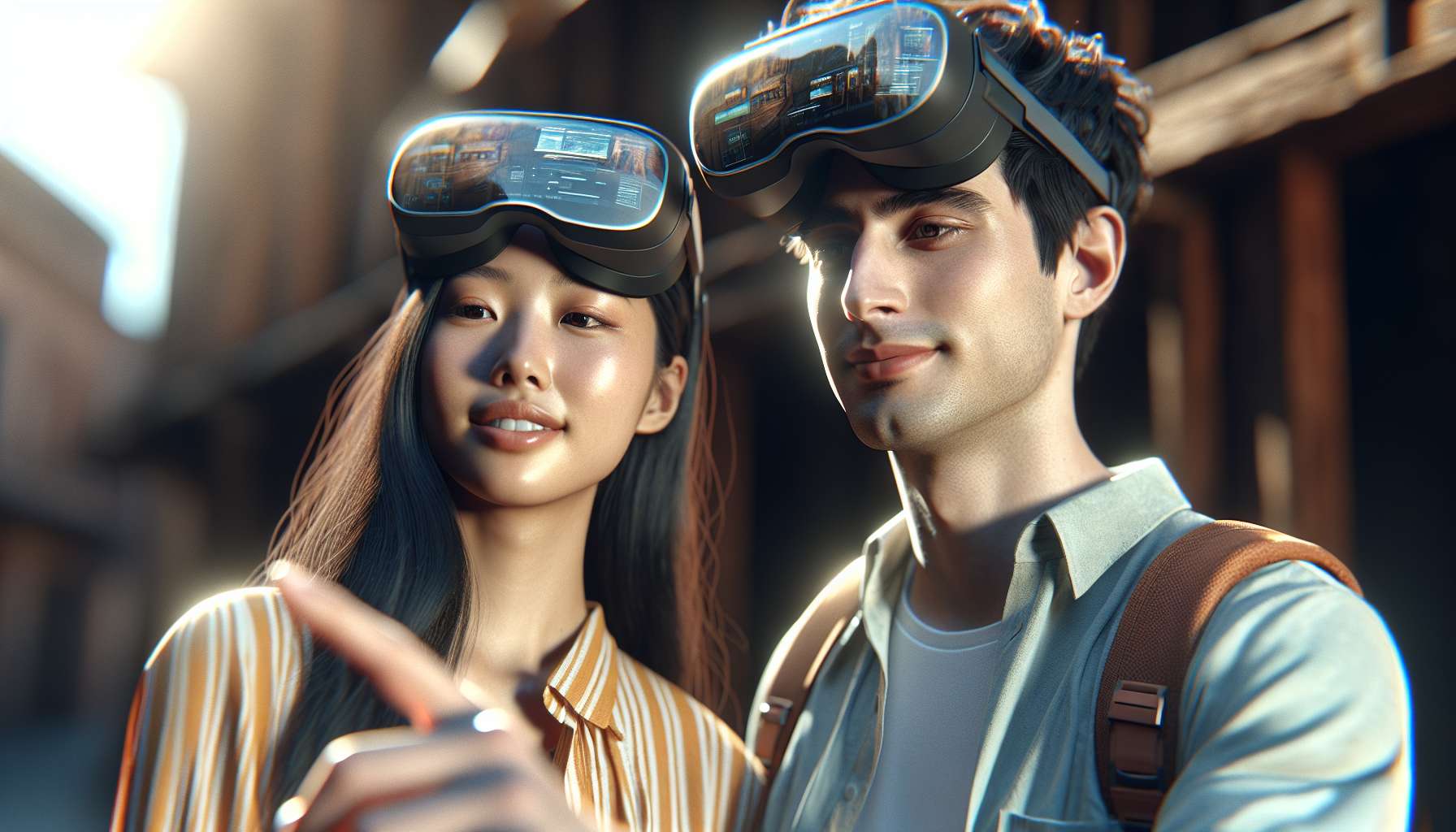Unlocking the World: How Augmented Reality Enhances Cultural Immersion for Tourists
As technology continues to evolve, so does the way we experience the world around us. One of the most exciting advancements in recent years is the integration of augmented reality (AR) into the tourism industry. AR has the power to transform the way we explore and engage with different cultures, offering a truly immersive experience that goes beyond traditional sightseeing. In this article, we will delve into the impact of AR on enhancing cultural immersion for tourists, and how it can revolutionize the way we travel.
Breaking Down the Barriers
One of the biggest challenges for tourists when visiting a foreign country is the language barrier. Communicating with locals, understanding signs, and navigating unfamiliar surroundings can be daunting. However, with AR, these barriers can be overcome. Imagine wearing a pair of AR glasses that instantly translate signs, menus, and conversations in real-time. Suddenly, you can effortlessly communicate with locals, read street signs, and fully immerse yourself in the local culture. AR has the potential to bridge the gap between different languages, making travel more accessible and enjoyable for everyone.
Unveiling Hidden Stories
Every city has its own unique history and stories to tell. However, many of these stories often go unnoticed by tourists who are unaware of their significance. AR can change that by bringing these hidden stories to life. By simply pointing your smartphone or AR device at a historical landmark, you can unlock a wealth of information, anecdotes, and interactive experiences. Whether it’s exploring ancient ruins, walking through virtual museums, or witnessing historical events unfold before your eyes, AR allows tourists to delve deeper into the cultural heritage of a destination.
Creating Personalized Experiences
One of the key advantages of AR in tourism is its ability to create personalized experiences for each individual traveler. With AR, tourists can customize their itineraries based on their interests, preferences, and learning styles. Whether you’re a history buff, an art enthusiast, or a foodie, AR can tailor the content and information presented to you, ensuring that your travel experience aligns with your passions. This level of personalization not only enhances cultural immersion but also makes the journey more meaningful and memorable.
Enhancing Interactive Learning
AR is not only about sightseeing; it’s also a powerful educational tool. By overlaying digital information onto the physical world, AR can provide interactive learning experiences for tourists. Imagine exploring a traditional market and having AR pop-ups appear, offering insights into local ingredients, cooking techniques, and cultural traditions. Or visiting a historical site and witnessing virtual reenactments of significant events. AR has the potential to transform tourism into a dynamic and educational adventure, where learning becomes an integral part of the travel experience.
Looking Ahead: The Future of AR in Tourism
The possibilities of AR in tourism are vast and ever-expanding. As the technology continues to evolve, we can expect even more exciting developments in the years to come. From virtual tour guides and gamified city exploration to immersive cultural festivals and interactive travel souvenirs, AR has the potential to revolutionize the way we engage with different cultures. The future of tourism is undoubtedly intertwined with augmented reality, offering endless opportunities for cultural immersion and exploration.
So, whether you’re a seasoned traveler or someone planning your next adventure, consider the transformative power of AR in enhancing cultural immersion. Embrace the technology, unlock hidden stories, break down language barriers, and create personalized experiences that will leave a lasting impact. The world is waiting to be explored, and with AR, the possibilities are limitless.





